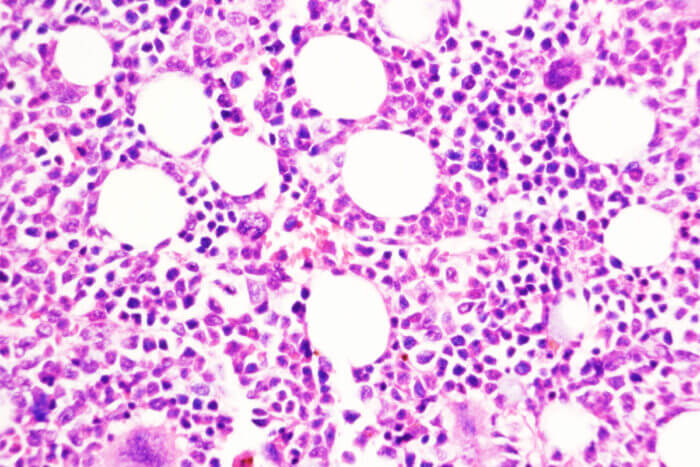Myeloproliferative neoplasms (MPN) is a type of blood cancer that can progress slowly over many years. Some patients may need treatment to manage this disease, while others may be able to wait and monitor their condition. However, a small percentage of patients experience a transformation into a more aggressive form of the disease called secondary acute myeloid leukemia, which has limited treatment options.
Researchers at Washington University School of Medicine have identified a key point in this transition and have found that blocking a molecule called DUSP6 can prevent the progression of the disease both in mice with models of the disease and in mice with tumors from human patients.
Inhibiting DUSP6 also helps overcome the resistance that these cancers often develop to a treatment called JAK2 inhibitors. The researchers are now interested in exploring treatments that inhibit another molecule called RSK1, which is activated downstream of DUSP6 and is necessary for the negative effects of DUSP6 to continue. There are drugs in clinical trials that inhibit RSK1, and the researchers hope to investigate their potential for blocking the transition from chronic to aggressive disease and addressing resistance to JAK2 inhibitors.
“Secondary acute myeloid leukemia has a grim prognosis,” said senior author Stephen T. Oh, MD, PhD, an associate professor of medicine and co-director of the Division of Hematology at the School of Medicine. “Almost every patient who develops acute leukemia after a history of myeloproliferative neoplasms will die from the disease. Therefore, a major focus of our research is to better understand this conversion from chronic to aggressive disease and to develop better therapies and, hopefully, prevention strategies for these patients.”
“These patients are commonly treated with JAK2 inhibitors, but their disease progresses despite that therapy, so we’re also trying to identify how the disease is able to worsen even in the setting of JAK2 inhibition,” said Oh, who treats patients at Siteman Cancer Center at Barnes-Jewish Hospital and Washington University School of Medicine.
“A future clinical trial might enroll myeloproliferative neoplasm patients who are taking JAK2 inhibitors and, despite that, show evidence of their disease worsening,” Oh said. “At that point, we might add the type of RSK inhibitor that’s now in trials to their therapy to see if that helps block progression of the disease into an aggressive secondary acute myeloid leukemia. A newly developed RKS inhibitor is in phase 1 clinical trials for patients with breast cancer, so we’re hopeful our work provides a path forward for a new therapeutic strategy for these patients.”

